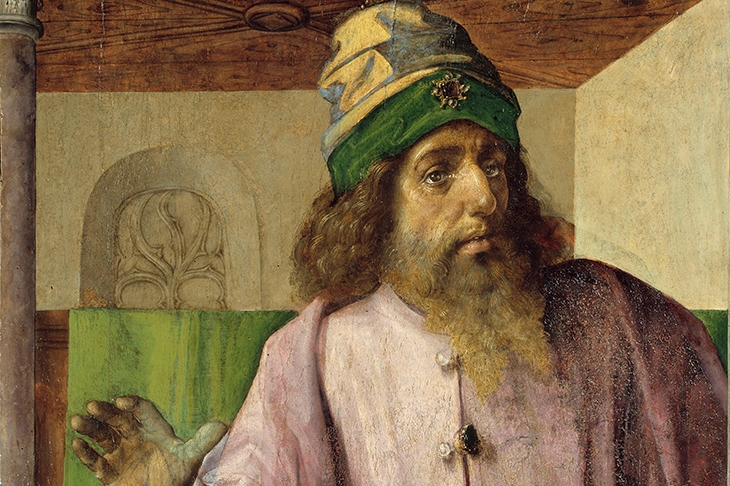Last week Ross Clark expatiated on the hysteria and panic generated by Covid-19 that threatens to send the world into lockdown. These are aspects of the emotion of ‘fear’, and the Greeks certainly had words for that.
The root of Greek deos ‘fear’ meant ‘two’, and was cognate with the Latin dub- (cf. ‘dubious’), i.e. being ‘in two minds’, the feelings ‘in the balance’. Greek phobos (cf. ‘phobia’) meant ‘running for it’; and the ekplêx- stem (cf. ‘apoplexy’) referred to being driven out of one’s mind by any overwhelming emotion, (e.g. love), including being stunned by fear. ‘Panic’ (Greek panikon) derives from the Greek god Pan, whose sudden, often noisy, appearance for no visible reason was thought to generate a mindless reaction.
But Aristotle tended to intellectualise emotions, including fear. He defined it as ‘a kind of pain or disturbance, resulting from the imagination of impending danger, either destructive or painful’ and made the crucial point that ‘fear makes men cogitate’. His point was that, if one thought one foresaw impending danger, it was wise to make an assessment of what was fearful about it and infer from the situation whether that fear was justified or not (as he went on, ‘No one argues about hopeless cases’). It was all about cognition. For example, in Homer’s Iliad Odysseus began his appeal to Achilles to return to the fighting as follows: ‘We fear a disaster: it could go two ways — our fleet being saved or destroyed’. No ‘running for it’ there: Achilles’ return would ‘tip the balance’.
Others saw fear differently. The soldier Xenophon thought it concentrated the mind: confident soldiers were tempted to turn into a disorderly, careless rabble, while fear made them ‘attentive, obedient and disciplined’. Panikon was used by Cicero to mean ‘baseless rumour’.
But Covid-19 is certainly not that, and if the stock market is edgy, people in the streets are not (at least yet) — indeed, they are almost Aristotelian.
By the way, ‘hysteria’ was derived in the 17th century from Greek hustera, ‘womb’ and latinised into hystericus and later hysteria, as professional medical terms for what were thought to be female neuroses. No sign of that, either.






Comments